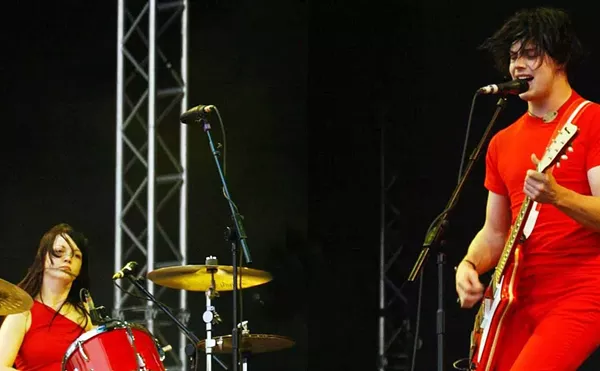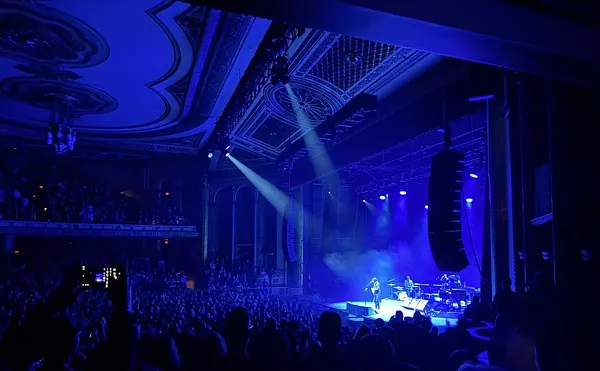
Audio By Carbonatix
[
{
"name": "GPT - Leaderboard - Inline - Content",
"component": "35519556",
"insertPoint": "5th",
"startingPoint": "3",
"requiredCountToDisplay": "3",
"maxInsertions": 100,
"adList": [
{
"adPreset": "LeaderboardInline"
}
]
}
]
The corner of the world containing Albania, Armenia and other Balkan, Crimean and Eastern Mediterranean homelands has been a cultural melting pot for centuries. All of these places are on the way to somewhere else and, as a result, have repeatedly been stomped on and through by empires (Macedonian, Ottoman and Russian) on the make. Music in these areas, like many of the other arts, has mutated, grafting elements of one ethnic group onto another creating the kind of Gordian Knot academics love to parse. Even though the Immigrant Suns all started off in local rock bands they have evolved into a group with an international (almost folkloric) slant simply by exploring the roots of each others individual ethnicities and eccentricities. It just so happens that in their musical world Albanian, Montenegran and Polish folk melodies mesh with Klezmer and experimental rock tendencies to create a sound picture that crosses all boundaries. If you have to assign a label, then "Balkan rock/folk" might work. The hybrid formula that the Immigrant Suns have been working on since 1992 has reached another peak with their latest release, More Than Food. It's exciting, not in the same way a three-chord power-pop masterpiece is, but with pulsing rhythms and exotic sounding modes serving a call to dance for urban and international gypsies. "Skanderberg," "Gifkás" and "Abdurrahman's Umbrella" are all new gems in the band's repertoire but their take on the Lennon-McCartney classic "Girl" is a bit of mutant genius and "Steel Edifice" is a wonderful blend of pungent lyricism and vocal harmonies wedded to a catchy mid-tempo hook.





